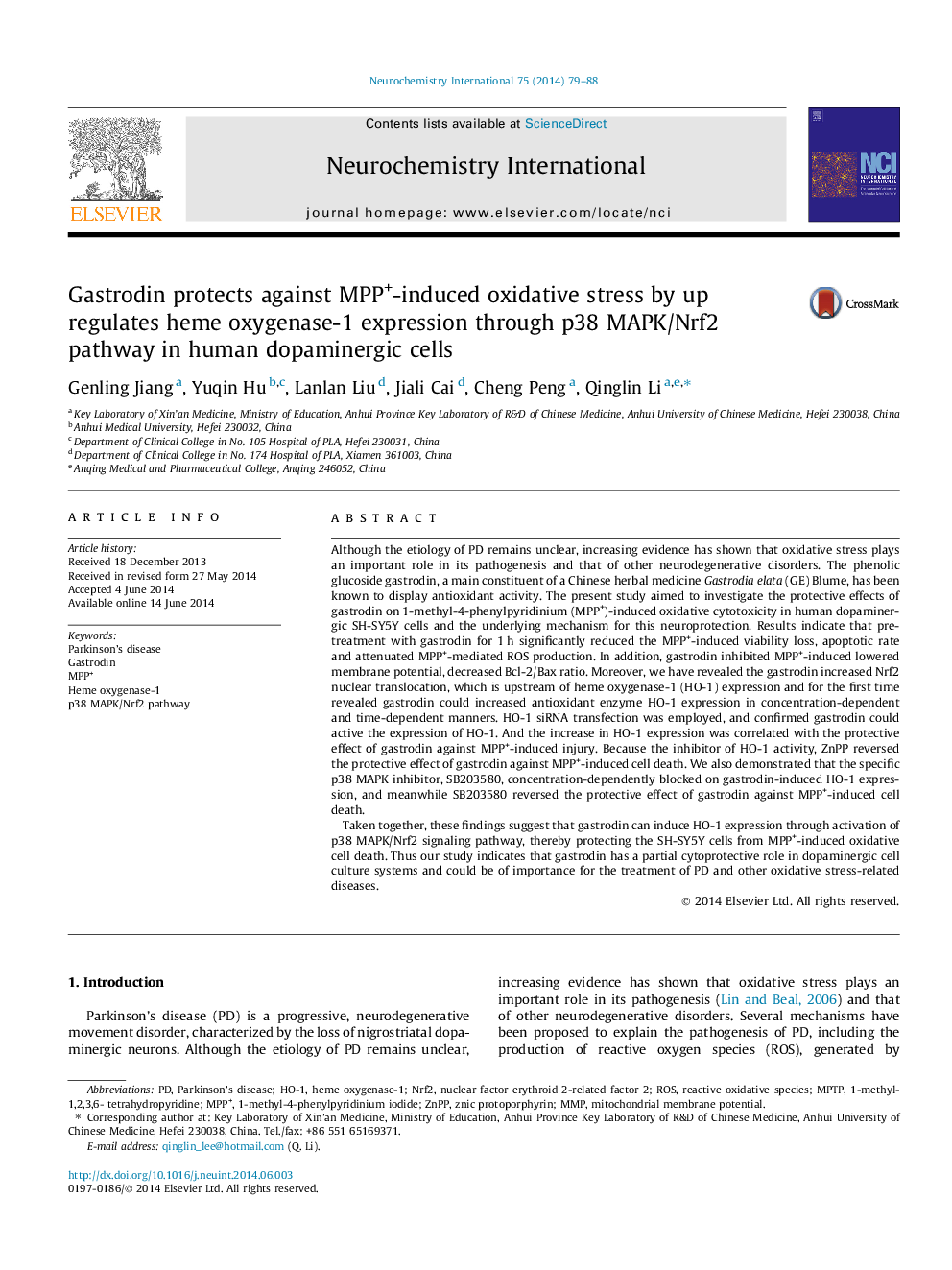| Article ID | Journal | Published Year | Pages | File Type |
|---|---|---|---|---|
| 2200506 | Neurochemistry International | 2014 | 10 Pages |
•Gastrodin inhibits MPP+ induced SH-SY5Y cell death.•Gastrodin induces nuclear accumulation of Nrf2 and HO-1 protein expression.•Gastrodin can induce HO-1 expression through activation of p38 MAPK/Nrf2 signal pathways.
Although the etiology of PD remains unclear, increasing evidence has shown that oxidative stress plays an important role in its pathogenesis and that of other neurodegenerative disorders. The phenolic glucoside gastrodin, a main constituent of a Chinese herbal medicine Gastrodia elata (GE) Blume, has been known to display antioxidant activity. The present study aimed to investigate the protective effects of gastrodin on 1-methyl-4-phenylpyridinium (MPP+)-induced oxidative cytotoxicity in human dopaminergic SH-SY5Y cells and the underlying mechanism for this neuroprotection. Results indicate that pre-treatment with gastrodin for 1 h significantly reduced the MPP+-induced viability loss, apoptotic rate and attenuated MPP+-mediated ROS production. In addition, gastrodin inhibited MPP+-induced lowered membrane potential, decreased Bcl-2/Bax ratio. Moreover, we have revealed the gastrodin increased Nrf2 nuclear translocation, which is upstream of heme oxygenase-1 (HO-1) expression and for the first time revealed gastrodin could increased antioxidant enzyme HO-1 expression in concentration-dependent and time-dependent manners. HO-1 siRNA transfection was employed, and confirmed gastrodin could active the expression of HO-1. And the increase in HO-1 expression was correlated with the protective effect of gastrodin against MPP+-induced injury. Because the inhibitor of HO-1 activity, ZnPP reversed the protective effect of gastrodin against MPP+-induced cell death. We also demonstrated that the specific p38 MAPK inhibitor, SB203580, concentration-dependently blocked on gastrodin-induced HO-1 expression, and meanwhile SB203580 reversed the protective effect of gastrodin against MPP+-induced cell death.Taken together, these findings suggest that gastrodin can induce HO-1 expression through activation of p38 MAPK/Nrf2 signaling pathway, thereby protecting the SH-SY5Y cells from MPP+-induced oxidative cell death. Thus our study indicates that gastrodin has a partial cytoprotective role in dopaminergic cell culture systems and could be of importance for the treatment of PD and other oxidative stress-related diseases.
Graphical abstractFigure optionsDownload full-size imageDownload as PowerPoint slide
